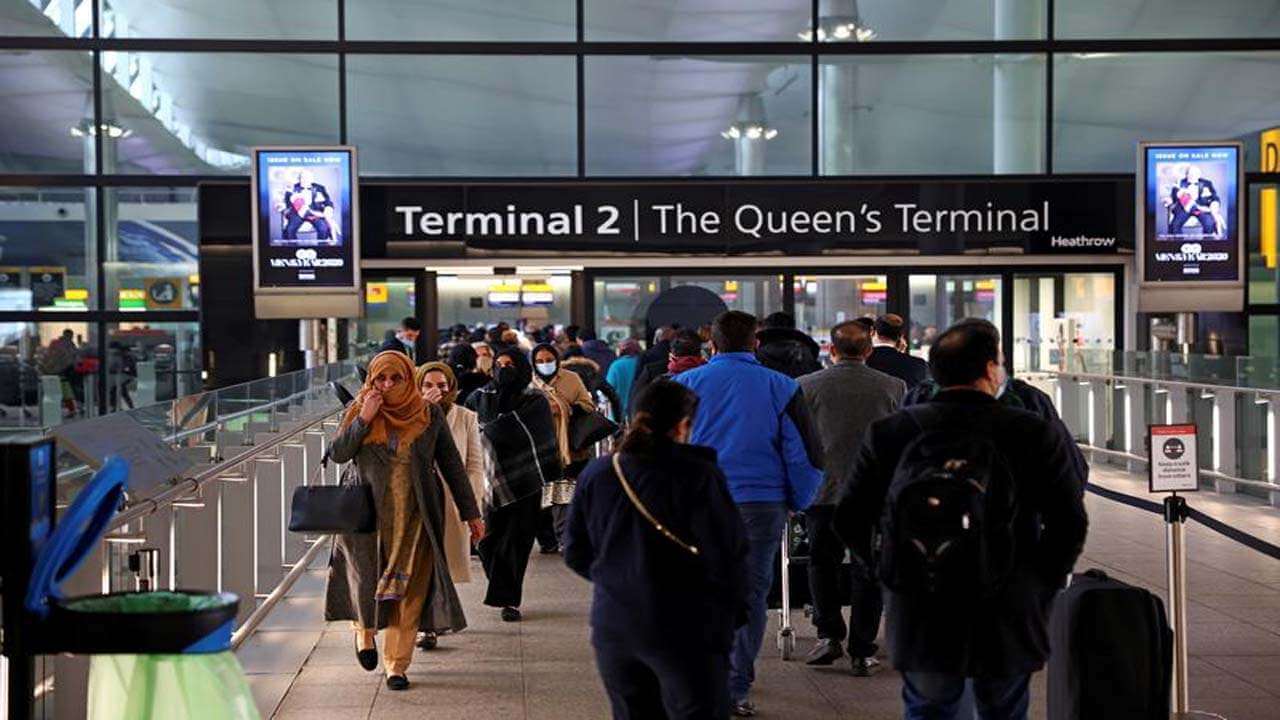The success and pace of the United Kingdom’s (UK) vaccine program has allowed it to announce the easing of travel restrictions. Fully vaccinated individuals from several countries have now been allowed to travel to the UK without undergoing a quarantine period.
The new system, which was announced on Monday, replaces the previous system that differentiated between countries based on their COVID-19 situation and placed them in red, green, and amber lists. Now, there is merely a single red list featuring 50 countries and passengers travelling from these countries into the UK will be required to quarantine in a hotel for ten days. Furthermore, people from non-red countries that are under 18 will not be required to undergo the RTPCR test to enter the UK. However, all other travellers will have to undergo an RT-PCR two days after arrival.
The rules have not been changed for unvaccinated passengers, who will still require an RT-PCR pre-departure and two and eight days after arrival. Moreover, they will have to mandatorily self-isolate for ten days.
Celebrating the announcement, Travel Secretary Grant Shapps said, “We are accelerating towards a future where travel continues to reopen safely and remains open for good, and today's rule changes are good news for families, businesses and the travel sector.” He further said that while the priority of the government remains the health of its citizens, with 80% of its citizens fully vaccinated, these measures are necessary to aid post-pandemic economic recovery.
The step has been welcomed by the industry, which had previously criticised the UK for the delays in easing travel restrictions. Tim Alderslade, the chief executive of Airlines UK, said that the announcement was a step in the right direction. However, he said that the UK continued to be “an outlier on arrivals testing for vaccinated passengers.” Furthermore, Willie Walsh said that the change was a “positive step” as the testing and quarantine requirements were “unscientific and costly.”
However, some countries continue to feature in the red list. This includes India, Brazil, South Africa, Mexico, and the Philippines. Individuals travelling from these countries will have to quarantine for ten days in a government-approved hotel. British and Irish citizens have been exempt from the quarantine requirement. However, sources cited by NDTVsuggest that the requirement to quarantine in hotels will be scrapped later this month.
This adds to the ongoing rift between the UK and India. Passengers from India will be required to take the three RTPCR tests and self-isolate at a hotel beause it continues to feature in the red list. Previously, after the UK announced its decision to continue to mandate quarantine for fully inoculated Indian passengers, India introduced a reciprocal policy singling out British citizens and requiring them to do a ten-day quarantine at a place of their choosing.
India had previously expressed its discontent with the UK’s decision to not recognise Covishield, the Indian-made version of the Oxford-AstraZeneca vaccine. However, after weeks of bilateral discussions, Covishield was recognised by the British government. Nevertheless, fully vaccinated passengers from India are still required to quarantine.
In response to India’s concerns, the UK maintains that it continues to work with its international partners, including India, to “roll out [their] phased approach.” Further, they added that the country was working with other countries to extend its vaccine certification to recognise more countries’ certificates.
With vaccine drives across the world progressing, countries have now started opening up their borders to vaccinated passengers. However, there continues to be some scepticism specifically with the threat of a third wave approaching most countries. Hence, it is yet to be seen how international travel, especially for tourism, will be smoothened to bring back confidence in passengers.
UK Continues to Exclude India From New Simplified Travel List
The UK introduced a simplified system that eases travel restrictions from all countries, except those featuring on the red list, and allows them to enter the country without quarantine.
October 6, 2021

SOURCE: DNA INDIA
